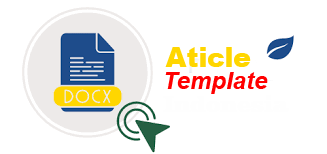Development of Android-Based Network Service Technology Learning Media for Vocational Middle School Students
DOI:
https://doi.org/10.30865/json.v4i1.4384Keywords:
Android, Learning Media, Methods, Students, Network Service TechnologistsAbstract
Information and communication technology have developed along with globalization so that interaction and information delivery will quickly. One of the problems in education that is a priority to immediately find a solution is the problem of the quality of education, especially the quality of learning. From various existing conditions and potentials, efforts that can be made regarding quality improvement in schools are to develop a student-oriented learning system (children center) and facilitate students' needs for learning needs that are challenging, active, creative, innovative, practical, and fun with developing and implementing Information and Communication Technology-based learning This research is a Research and Development research with the media development model used referring to the type of Four-D development consisting of 4 stages, namely Define (defining), Design (design), Develop (development) and Disseminate (dissemination) which is carried out in Vocational High School class XI Computer and Network Engineering. The test subjects in this study were students of class XI Computer and Network Engineering SMK. The results of the three validators' overall assessment of the validator test assessment of Android-Based Learning Media is 94.28%, so the level of validity can be interpreted as Very Valid for use. Overall, the practicality assessment of Android-Based Learning Media as a learning resource is 88.46%, so the practicality level can be interpreted as Very Practical to use. As well as the assessment of the effectiveness of the Android-Based Learning Media of 90.86%, so that the level of effectiveness can be interpreted as very good for use.
References
Chomaidi dan Salamah. 2018.Pendidikan dan Pengajaran. Jakarta: PT. Grasindo
Rusman. 2012. Belajar dan Pembelajaran Berbasis Komputer. Bandung: Alfabeta
Arsyad. 2016. Media Pembelajaran. Jakarta: PT Raja Grafindo
Rusman. 2012. Belajar dan Pembelajaran Berbasis Komputer. Bandung: Alfabeta
Indra & S. rini Wijaya, “INTERACTIVE MODULES BASED ADOBE DIRECTOR ON COMPUTER ASSEMBLING SUBJECTS FOR VOCATIONALSECONDARY SCHOOL,â€volt Pendidik. elektro, vol. 2, 2017.
Sugiyono. 2013. Metode Penelitian Pendidikan (Pendekatan Kuantitati,Kualitatif dan R&D). Bandung: Alfabeta.
Thiagarajan, dkk.1974.Instructional Development for Training Teachers of Exceptional Children. Minneapolis, Minnesota: Leadership Training Institute/ Special Education, University of Minnesota. (https://bustangbuhari.wordpress.com/2011/08/25/four-d-model-model-pengembangan-perangkat-pembelajaradari -thiagarajan-dkk.diakses 10/10/2019pukul 19.44 wib).
Purwanto, Ngalim. 2010.Prinsip-Prinsip dan Teknik Evaluasi Pengajaran.Bandung: PT Remaja Rosdakarya.
Sugiyono. 2013. Metode Penelitian Pendidikan (Pendekatan Kuantitati,Kualitatif dan R&D). Bandung: Alfabeta
Irianto, Agus. 2014. StatistikKonsepDasar, AplikasidanPengembangannyaEdisiKedua. Jakarta: Kencana.
Purwanto, Ngalim. 2010.Prinsip-Prinsip dan Teknik Evaluasi Pengajaran.Bandung: PT Remaja Rosdakarya.
Downloads
Published
How to Cite
Issue
Section
License

This work is licensed under a Creative Commons Attribution 4.0 International License
Authors who publish with this journal agree to the following terms:
- Authors retain copyright and grant the journal right of first publication with the work simultaneously licensed under Creative Commons Attribution 4.0 International License that allows others to share the work with an acknowledgment of the work's authorship and initial publication in this journal.
- Authors are able to enter into separate, additional contractual arrangements for the non-exclusive distribution of the journal's published version of the work (e.g., post it to an institutional repository or publish it in a book), with an acknowledgment of its initial publication in this journal.
- Authors are permitted and encouraged to post their work online (e.g., in institutional repositories or on their website) prior to and during the submission process, as it can lead to productive exchanges, as well as earlier and greater citation of published work (Refer to The Effect of Open Access).




